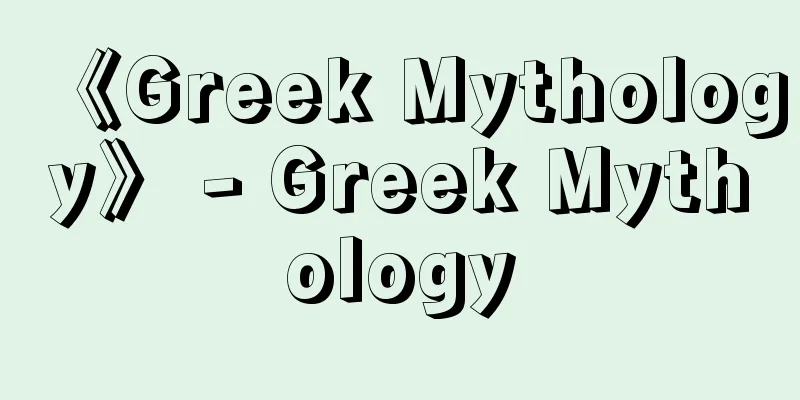Golden Bull (English spelling: Bulla aurea; Goldene Bulle)

|
Also called the Golden Bull or the Golden Charter. It generally means a document with a gold seal, but historically, as a proper noun, it refers to a specific document. (1) Golden Bull of Sicily (1212) A document in which Frederick II (Redbeard), a German king (later Holy Roman Emperor), confirmed Bohemia's autonomy. (2) Golden Bull of 1222 A bull written by the nobles and clergy of Hungarian King Andrew II (reigned 1205-35) in response to his extravagant spending and dissipation, guaranteeing the rights of the nobles. It proclaimed regular meetings of the noble assemblies, prohibition of illegal arrests of nobles, exemption of churches and nobles from property taxes, exemption from free military service, prohibition of foreigners from owning land, banning Jews and Muslims from public office, reducing the power of royal officials, and establishing the right of the nobles to resist the king (ius resistendi), and successive Hungarian kings were forced to take this oath. (3) Golden Bull of Rimini (1226) A bull by Holy Roman Emperor Frederick II granting sovereignty over Prussia to the Teutonic Knights. (4) Golden Bull of 1356 An imperial law issued by Holy Roman Emperor Charles IV at the Imperial Diets of Nuremberg and Metz. It resolved the political turmoil in Germany after the Interregnum, and in particular stipulated the procedure for the election of the king (→ electoral monarchy) and the lineage of the electors. There were seven electors, and they were granted various privileges, such as supreme judicial power, mining, coinage, and customs collection, and their territories were to be inherited by primogeniture and indivisible. Other provisions included the prohibition of feuds (private battles) and alliances between fief holders, and the prohibition of urban expansion. These provisions, which applied only to the electors, were gradually extended to other princes, bringing about the transition to a territorial monarchy. Source: Encyclopaedia Britannica Concise Encyclopedia About Encyclopaedia Britannica Concise Encyclopedia Information |
|
黄金文書,金印憲章とも呼ばれる。金板の印章を付した文書を一般に意味するが,歴史上,固有名詞としては特定の文書をさす。 (1) シチリアの金印勅書 (1212) ドイツ王 (のちの神聖ローマ皇帝) フリードリヒ2世 (赤髯王) がボヘミアの自治権を確認した文書。 (2) 1222年の金印勅書 ハンガリー王アンドラーシュ2世 (在位 1205~35) の乱費,散財が発端となり,貴族と聖職者が彼に書かせた勅書で,貴族の権利を保障したもの。貴族議会の定期開催,貴族の不法逮捕の禁止,教会と貴族の財産税免除,無料兵役の免除,外国人による土地所有の禁止,ユダヤ人とイスラム教徒の公職追放,王の官吏の権限縮小,王に対する貴族の抵抗権 ius resistendiの確立がうたわれ,歴代のハンガリー王はその宣誓を強いられた。 (3) リミニの金印勅書 (1226) 神聖ローマ皇帝フリードリヒ2世がプロシアに対する主権をドイツ騎士団に授与した勅書。 (4) 1356年の金印勅書 神聖ローマ皇帝カルル4世が,ニュルンベルクおよびメッツの帝国議会で発布した帝国法。大空位時代以後のドイツの政治的混乱を解決し,特に国王選挙 (→選挙王制 ) の手続と,選帝侯の家柄を規定した。選帝侯は7人とし,これに最高裁判権,鉱山採掘,貨幣鋳造,関税徴収などの諸特権が付与され,その領地は長子相続による国土不分割とされた。そのほかフェーデ (私闘) や封土保持者間の同盟禁止,都市域拡張の禁止なども規定された。選帝侯のみを対象とするこれらの規定は,次第に他の諸侯にも拡大され,領邦君主体制への転換を招来するものであった。
出典 ブリタニカ国際大百科事典 小項目事典ブリタニカ国際大百科事典 小項目事典について 情報 |
Recommend
Kiyohiko Ushihara
1897-1985 A film director from the Taisho and Sho...
Ostwald, W.
…German chemist. Born in Riga, Latvia. His father...
Leaf mold - Fuyodo
Leaf mould is formed by the accumulation of falle...
Osaka Bay
A sunken bay at the eastern end of the Seto Inlan...
Semito-Hamitic (English spelling)
…Also called Semito-Hamitic. A name given since t...
Recorde, R.
…In 16th century Germany, x was used (called the ...
Greco-Turkish War
A war fought between Greece and Turkey (1919-1922...
Mud Tower
〘Noun〙 Buddhist term. A mud tower built to pray fo...
The Indian Councils Act
…The first, in 1858, deals with the transfer to t...
Asbjornsen, PC - Asbjornsen
…After nearly a century of rampant educationalism...
Pearl, R.
...Then, Belgian mathematician PF Verhulst (1804-...
Hatra
Registered as a World Heritage Site (cultural heri...
《Eikaitai》
…The Gotoba-in Gokuden and Juntoku-in Yakumo Mish...
Vireonidae
…Any of the birds of the Vireonidae family of pas...
Mountain name - Sango
A title given to the name of a temple. In India a...









